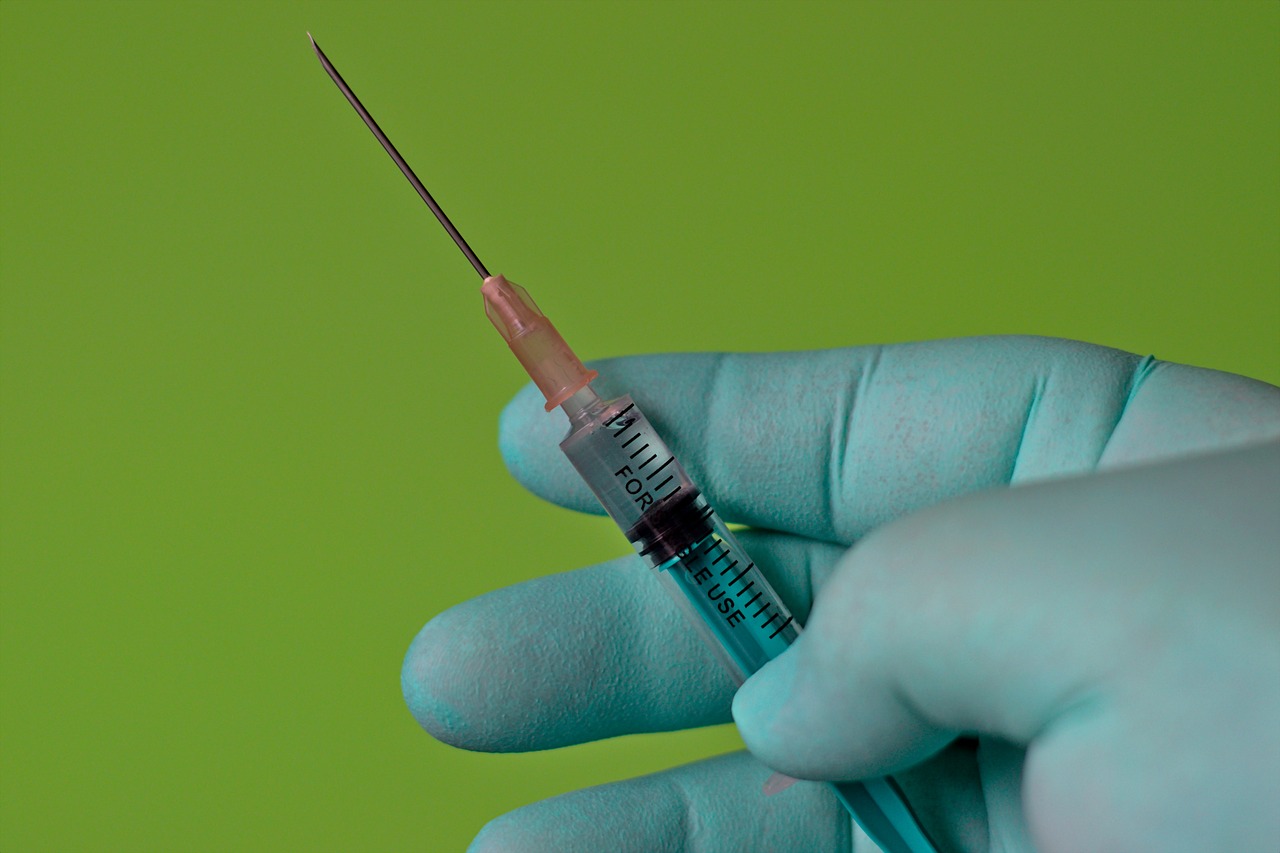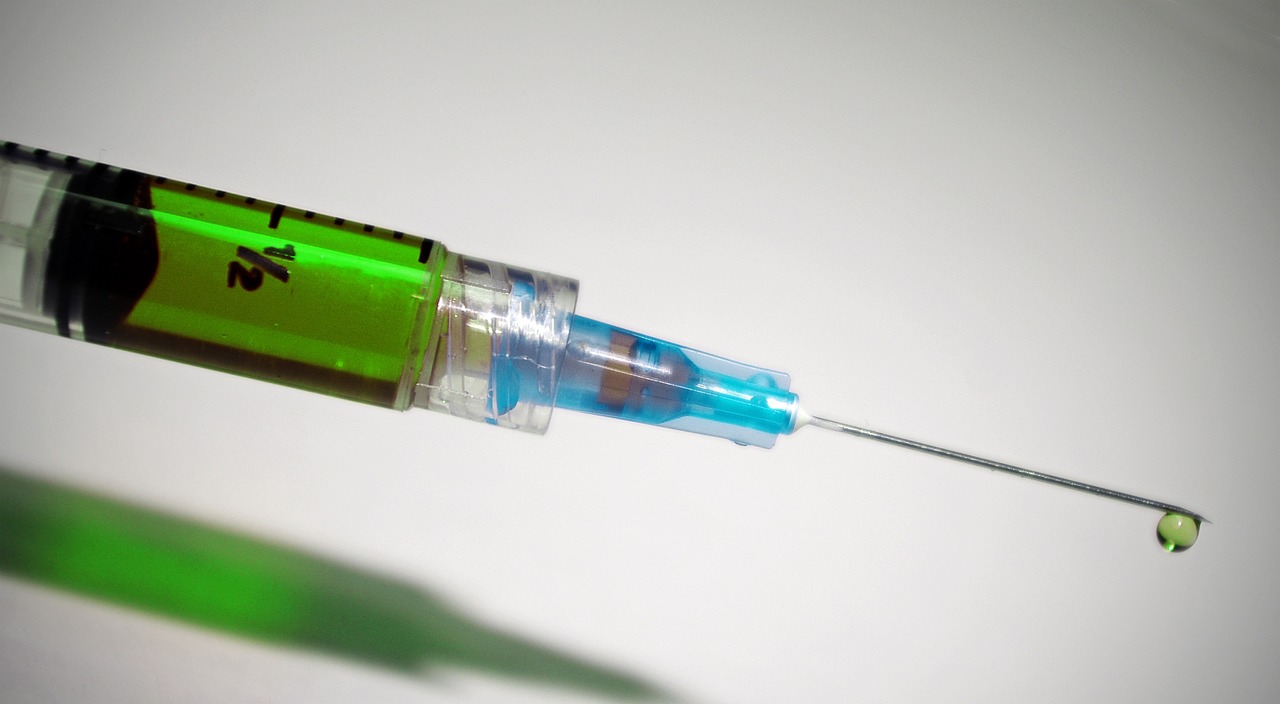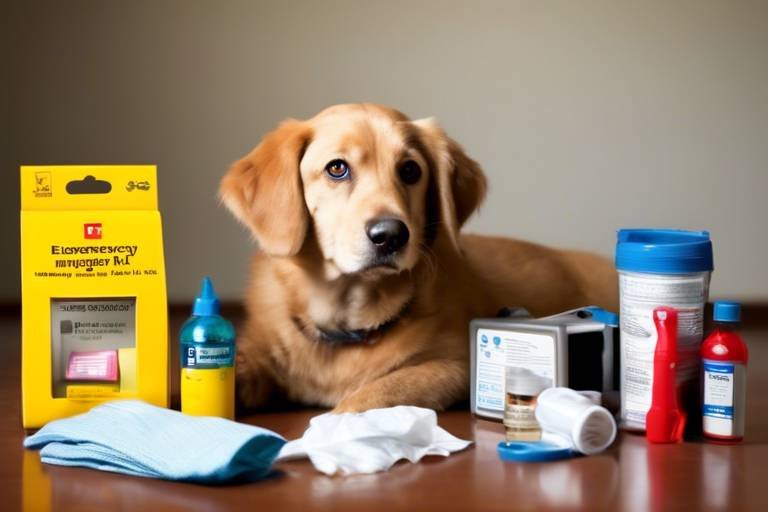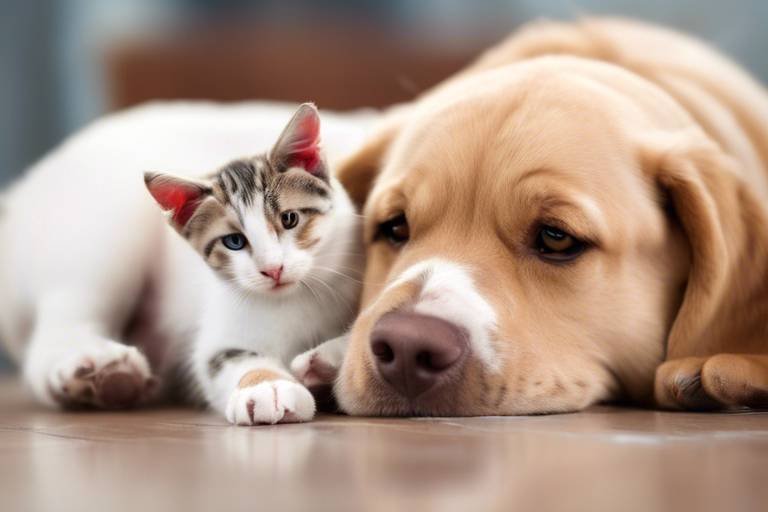Understanding Pet Vaccinations and Their Importance
When it comes to keeping our furry friends healthy, few things are as crucial as vaccinations. Just like humans, pets are susceptible to a range of diseases, some of which can be severe or even fatal. Vaccinations act as a shield, protecting our beloved companions from these threats. But what exactly are vaccinations, and why should we prioritize them? In this article, we’ll dive deep into the significance of pet vaccinations, exploring the different types available, their benefits, and even potential side effects. By the end, you’ll understand not just the importance of vaccinating your pet, but also how it plays a vital role in public health and enhances the longevity of your furry family member.
Vaccinations work by stimulating your pet's immune system to recognize and fight off specific pathogens. When a vaccine is administered, it introduces a harmless component of a disease-causing organism, prompting the body to produce antibodies. This means that if your pet is later exposed to the actual disease, their immune system is already prepared to combat it. Think of it as a rehearsal for a play; your pet gets to practice their lines before the big performance, ensuring they know exactly what to do when the curtain rises on the real thing.
But why are vaccinations so essential? The answer lies in the concept of herd immunity. When a significant portion of the pet population is vaccinated, it creates a protective barrier that helps prevent the spread of diseases. This is particularly important for pets that may not be able to receive certain vaccines due to health issues. By vaccinating your pet, you're not just safeguarding their health; you're also contributing to the well-being of the entire animal community.
In the following sections, we will explore the different types of vaccines available, including core and non-core vaccines, and discuss their specific roles in safeguarding your pet's health. We’ll also delve into the benefits of vaccination, potential side effects, and the importance of establishing a vaccination schedule with your veterinarian. So, let’s get started on this journey to better understand the world of pet vaccinations!
Understanding the fundamental concepts behind pet vaccinations is essential. Vaccines are biological preparations that provide acquired immunity to a particular infectious disease. They work by mimicking an infection, which triggers the immune system to produce antibodies. This process is vital for maintaining your pet's health and preventing the spread of diseases.
Different vaccines serve various purposes for pets. Here, we categorize vaccines into core and non-core types, explaining which diseases they protect against and the recommended schedules for administration.
Core vaccines are essential for all pets. These vaccines protect against diseases that are widespread and can be severe or fatal. For instance, the rabies vaccine is not only a legal requirement in many areas but also crucial for public health. The distemper vaccine protects against a highly contagious disease that can lead to severe neurological issues.
The rabies vaccine is a legal requirement in many areas. It is vital for both pets and public health, as rabies is a deadly disease that can be transmitted to humans. Vaccination not only protects your pet but also helps prevent the spread of this disease to other animals and people.
The distemper vaccine protects against a highly contagious disease that can have devastating effects on your pet's health. Symptoms of distemper can include fever, coughing, and neurological issues. Vaccination plays a critical role in preventing this disease, ensuring that your pet lives a long and healthy life.
Non-core vaccines are recommended based on lifestyle and risk factors. These optional vaccines may be necessary for pets that are frequently exposed to certain environments or other animals. For example, pets that spend a lot of time outdoors or are in contact with other animals may benefit from vaccines like Bordetella or Lyme disease vaccines.
Vaccinations offer numerous benefits beyond disease prevention. They contribute to your pet's overall health and well-being, and they can even lead to cost savings for pet owners. By keeping your pet vaccinated, you reduce the risk of serious illnesses that can lead to expensive veterinary bills.
Vaccines can lead to a longer, healthier life for pets. By preventing serious diseases, vaccinations can improve your pet's quality of life and longevity. Regular vaccinations ensure that your pet remains protected throughout their life.
Vaccinations not only protect individual pets but also contribute to public health. By achieving herd immunity, we can prevent outbreaks of diseases that could affect both pets and humans. This collective immunity is essential for maintaining a healthy community.
While generally safe, vaccines can have side effects. Most reactions are mild and temporary, such as slight swelling at the injection site or a mild fever. However, it’s important to monitor your pet after vaccination and consult a veterinarian if you notice any concerning symptoms.
Mild reactions to vaccines are common and often temporary. Pet owners can expect slight lethargy or a reduced appetite following vaccination. These reactions usually resolve within a day or two and are a sign that the immune system is responding to the vaccine.
Though rare, severe reactions can occur. Signs of anaphylaxis include difficulty breathing, swelling of the face, or vomiting. If you notice any of these symptoms, it's crucial to seek immediate veterinary care.
Establishing a proper vaccination schedule is crucial for pet health. Puppies and kittens require a series of vaccinations to build their immunity, while adult pets need booster shots to maintain their protection against diseases.
Understanding the timeline for puppy and kitten vaccinations ensures timely protection. Initial vaccinations typically begin at six to eight weeks of age, with follow-ups every few weeks until they are about 16 weeks old.
Adult pets require booster shots to maintain immunity. The frequency of these vaccinations can depend on various factors, including the type of vaccine and the pet’s lifestyle. Regular check-ups with your veterinarian will help determine the best schedule for your furry friend.
Regular consultations with your veterinarian are vital for your pet's vaccination plan. Each pet is unique, and their vaccination needs may vary based on health, age, and lifestyle. Your veterinarian can help tailor a vaccination strategy that suits your pet's individual needs.
Every pet is unique, and vaccination needs may vary. Veterinarians assess risk factors such as breed, age, and lifestyle to create personalized vaccination plans that ensure optimal protection.
Pet owners often have questions about vaccines. It’s essential to communicate any concerns with your veterinarian. They can provide valuable insights and help alleviate any fears you may have about the vaccination process.
- What are the core vaccines for pets? Core vaccines typically include rabies, distemper, parvovirus, and adenovirus for dogs, while cats usually receive rabies, feline distemper, and feline leukemia vaccines.
- How often should my pet be vaccinated? Puppies and kittens require a series of vaccinations, while adult pets need booster shots every 1-3 years, depending on the vaccine and your veterinarian's recommendations.
- Can vaccines cause side effects? Yes, mild side effects like lethargy or swelling at the injection site are common, but severe reactions are rare. Always consult your veterinarian if you have concerns.

The Basics of Pet Vaccinations
Understanding the fundamental concepts behind pet vaccinations is essential for every pet owner. Vaccines are designed to stimulate the immune system of your furry friend, preparing it to fight off specific diseases. Think of vaccinations as a warm-up before a big game; they help your pet's body recognize potential threats without suffering from the actual illness. When a vaccine is administered, it introduces a harmless form of the disease-causing organism, prompting the immune system to produce antibodies. This process is crucial because it equips your pet with the necessary tools to combat real infections in the future.
But why are vaccinations so crucial? For starters, they not only protect your pet but also contribute to the overall health of the community. When a significant portion of the pet population is vaccinated, it creates a barrier against the spread of contagious diseases. This concept is known as herd immunity, and it plays a vital role in keeping both pets and humans safe. Imagine living in a neighborhood where everyone is healthy; the likelihood of illness spreading diminishes significantly. That’s the kind of environment we strive for through vaccinations!
There are various types of vaccines available, each serving a different purpose. They can be broadly categorized into two main types: core vaccines and non-core vaccines. Core vaccines are those that are essential for all pets, regardless of their lifestyle, while non-core vaccines are recommended based on specific risk factors and the pet's environment. Understanding which vaccines your pet needs is key to ensuring their health and longevity.
It's also important to note that the vaccination process is not a one-time event. Pets require a series of vaccinations, especially when they are young. For puppies and kittens, the vaccination schedule is crucial for building up their immunity. Regular booster shots throughout their lives are also necessary to maintain their protection against diseases. So, just like we go for regular check-ups at the doctor, our pets need their vaccinations to stay healthy!
In summary, pet vaccinations are a fundamental aspect of responsible pet ownership. They safeguard your pet’s health, contribute to community well-being, and ensure a longer, happier life for your furry companions. So, the next time you think about skipping a vet visit, remember that a little prevention can go a long way!
- What are the core vaccines for pets? Core vaccines typically include rabies, distemper, parvovirus, and adenovirus.
- How often should my pet be vaccinated? Puppies and kittens usually require a series of vaccinations during their first year, followed by booster shots every one to three years, depending on the vaccine.
- Are there any side effects to vaccinations? Most pets experience mild reactions, such as soreness at the injection site or slight fever, but severe reactions are rare.
- Can I delay my pet's vaccinations? It's essential to stick to the recommended vaccination schedule to ensure your pet is adequately protected against diseases.

Types of Vaccines
When it comes to keeping our furry companions healthy, understanding the available is crucial. Vaccines can be broadly categorized into two main groups: core vaccines and non-core vaccines. Each type serves a unique purpose in protecting your pet from various diseases, and knowing the difference can help you make informed decisions about your pet's health.
Core vaccines are essential for all pets, regardless of their lifestyle. These vaccines are designed to protect against diseases that are highly contagious and potentially fatal. For instance, the rabies vaccine is not only a legal requirement in many areas but also a critical line of defense against a disease that poses a significant threat to both pets and humans. Similarly, the distemper vaccine is vital for preventing a highly contagious viral infection that can lead to severe health complications.
On the other hand, non-core vaccines are recommended based on specific lifestyle factors and risk exposure. For example, if your pet frequently interacts with other animals or spends time in certain environments, your veterinarian may suggest additional vaccines to provide extra protection. These vaccines can include those for diseases like Bordetella (kennel cough) or Lyme disease, which are more relevant for pets with higher exposure to certain risks.
To give you a clearer understanding, here’s a quick overview of the core and non-core vaccines:
| Type of Vaccine | Examples | Purpose |
|---|---|---|
| Core Vaccines | Rabies, Distemper, Parvovirus | Essential for all pets; protects against highly contagious and fatal diseases. |
| Non-Core Vaccines | Bordetella, Lyme Disease, Leptospirosis | Recommended based on lifestyle and risk factors; provides additional protection. |
Understanding these types of vaccines is just the beginning. It's essential to consult with your veterinarian to determine which vaccines are appropriate for your pet based on their individual needs and lifestyle. After all, just like humans, pets have unique health profiles that can influence their vaccination requirements.
In conclusion, being aware of the different types of vaccines available can empower you to take proactive steps in safeguarding your pet's health. Remember, prevention is always better than cure, and vaccinations play a pivotal role in ensuring your furry friend lives a long, healthy life.
Core Vaccines
When it comes to safeguarding your furry friend’s health, are the heavy hitters. These vaccines are considered essential for all pets, regardless of their lifestyle, because they protect against diseases that can be severe or even fatal. Think of core vaccines as the foundation of your pet's health—just like a sturdy house needs a strong base to stand tall, your pet needs these vaccinations to build a robust immune system.
The most critical core vaccines include the rabies vaccine and the distemper vaccine. Let’s dive deeper into each of these to understand their significance. The rabies vaccine is not just a recommendation; in many areas, it’s a legal requirement. This vaccine is vital for both pets and public health because rabies is a zoonotic disease, meaning it can be transmitted from animals to humans. If a pet contracts rabies, the consequences are dire, often leading to death. By vaccinating your pet against rabies, you’re not just protecting them; you’re also contributing to the safety of your community.
On the other hand, the distemper vaccine protects against a highly contagious viral disease that can affect dogs, ferrets, and some wild animals. Distemper is notorious for its severe symptoms, which can include fever, coughing, and neurological issues. The vaccine is crucial because once a pet contracts distemper, the chances of recovery are slim, and the disease can spread rapidly among unvaccinated pets. Here’s a quick comparison of these two core vaccines:
| Vaccine | Diseases Prevented | Importance |
|---|---|---|
| Rabies Vaccine | Rabies | Legal requirement; protects both pets and humans |
| Distemper Vaccine | Canine Distemper Virus | Prevents severe illness and protects community pets |
In summary, core vaccines are the backbone of preventive care for pets. They not only shield your pet from potentially life-threatening diseases but also contribute to the broader health of the animal community. Just like you wouldn’t skip the essentials when building a strong foundation for your home, you shouldn't overlook these vital vaccinations for your pet. Ensuring your pet is up-to-date on core vaccines is one of the best ways you can show them love and care.
- What are core vaccines? Core vaccines are essential vaccinations that all pets should receive to protect against severe diseases.
- Why is rabies vaccination important? Rabies vaccination is crucial because it prevents a fatal disease that can also be transmitted to humans.
- How often should pets receive core vaccines? Pets typically receive core vaccines as puppies or kittens, with booster shots required at intervals determined by a veterinarian.
- Can my pet have side effects from vaccines? Yes, while most reactions are mild and temporary, it’s important to monitor your pet after vaccination.
Rabies Vaccine
The is not just a recommendation; in many places, it’s a legal requirement. Why is this vaccine so crucial? Well, rabies is a deadly virus that affects the central nervous system of mammals, including humans. Once symptoms appear, rabies is almost always fatal. By vaccinating your pet, you are not only protecting them but also contributing to public health safety. Imagine your beloved dog or cat getting bitten by a rabid animal; without the vaccine, the consequences could be dire.
When it comes to the rabies vaccine, timing is everything. Most veterinarians recommend that puppies and kittens receive their first rabies shot at around 12 to 16 weeks of age, followed by booster shots based on local laws and guidelines. This is essential because it helps establish a strong immunity against the virus. In fact, many states require proof of rabies vaccination for pet licensing, making it a critical step for responsible pet ownership.
But what about the actual vaccine? The rabies vaccine is typically an inactivated (killed) vaccine, meaning it contains killed rabies virus particles that stimulate the immune system without causing disease. This method is effective and generally safe, but like any medical procedure, it can have side effects. Most pets experience only mild reactions, such as soreness at the injection site or a slight fever. However, in rare instances, more severe reactions can occur, which is why it’s important to monitor your pet closely after vaccination.
In summary, the rabies vaccine is a vital component of your pet's health and a critical public safety measure. By ensuring your pet is vaccinated, you are taking a proactive step toward preventing a potentially fatal disease. Remember, keeping your pet safe is not just about their health; it's about protecting your family and community as well.
- How often does my pet need a rabies vaccine? Most pets require a rabies booster every 1 to 3 years, depending on local regulations and the type of vaccine used.
- Can my pet have a reaction to the rabies vaccine? Yes, while most pets will only experience mild side effects, some may have more severe reactions. Always consult your veterinarian if you notice anything unusual.
- Is the rabies vaccine safe for all pets? Generally, yes, but certain pets with specific health conditions may require a tailored approach. Always discuss your pet's individual needs with your veterinarian.
Distemper Vaccine
The is a crucial component of your pet's health regimen, providing essential protection against a highly contagious virus that affects both domestic and wild animals. Can you imagine a disease that can spread like wildfire among unvaccinated pets? That's exactly what distemper does! It targets the respiratory, gastrointestinal, and central nervous systems, making it a formidable foe. The vaccine works by introducing a harmless form of the virus, stimulating your pet's immune system to produce antibodies without causing the disease itself.
So, why is this vaccine so important? Distemper can lead to severe symptoms, including fever, coughing, vomiting, diarrhea, and even neurological issues like seizures and paralysis. The severity of these symptoms can be devastating, and unfortunately, many pets that contract distemper do not survive. Vaccination is the best defense against this disease, ensuring that your furry friend remains healthy and vibrant.
It's important to note that the distemper vaccine is typically administered as part of a combination vaccine, often referred to as the DAPP vaccine, which also protects against adenovirus and parvovirus. This combination not only simplifies the vaccination process but also enhances your pet's overall immunity against multiple diseases at once. Most veterinarians recommend starting the vaccination series when puppies are around 6 to 8 weeks old, with boosters given every 3 to 4 weeks until they are about 16 weeks old. Following that initial series, adult dogs should receive a booster shot every 1 to 3 years, depending on their lifestyle and risk factors.
In summary, the distemper vaccine is not just a shot; it's a shield that protects your pet from a potentially fatal disease. By ensuring your dog is vaccinated, you are taking a proactive step toward their long-term health and wellbeing. Remember, a healthy pet means a happy pet, and who doesn't want to see their furry friend live a long, joyful life?
- What are the signs of distemper? Common signs include fever, coughing, nasal discharge, vomiting, and diarrhea. Neurological symptoms may appear later, including seizures.
- Is the distemper vaccine safe? Yes, the distemper vaccine is generally very safe, with serious side effects being rare.
- Can my dog still get distemper if vaccinated? While no vaccine is 100% effective, vaccination significantly reduces the risk of contracting the disease and helps mitigate its severity if contracted.
Non-Core Vaccines
While core vaccines are essential for every pet, serve a different purpose. These vaccines are not universally required but are recommended based on specific lifestyle factors and the potential exposure to certain diseases. For instance, if your pet spends a lot of time outdoors, interacts with other animals, or travels frequently, non-core vaccines may be crucial to their health. It's like wearing a seatbelt; while it’s not necessary for every journey, it can be a lifesaver in certain situations.
Some of the common non-core vaccines include:
- Bordetella bronchiseptica: This vaccine protects against kennel cough, which is highly contagious and can spread quickly in places where pets congregate, such as boarding facilities or dog parks.
- Lyme Disease: If you live in an area where ticks are prevalent, this vaccine can help protect your pet from Lyme disease, a serious condition that can lead to long-term health issues.
- Leptospirosis: This bacterial infection can be contracted through contaminated water or soil. It is particularly important for pets that enjoy outdoor adventures or live in rural areas.
These vaccines are typically administered based on the pet's lifestyle and environmental risks. For example, a dog that frequently visits dog parks may need the Bordetella vaccine, while a cat that stays indoors may not require it. Consulting with your veterinarian is essential to determine which non-core vaccines are appropriate for your pet.
It's important to remember that while non-core vaccines can provide significant protection, they are tailored to individual needs. They are like the cherry on top of a well-balanced health sundae; while the core vaccines lay the foundation, non-core vaccines can enhance your pet's overall immunity against specific threats.

Benefits of Vaccination
Vaccinations are not just a routine part of pet care; they are a lifesaver! Imagine a world where your furry friend is protected from deadly diseases. That's exactly what vaccinations do—they equip your pet with the tools needed to fight off infections. The benefits of vaccinating your pet extend far beyond just preventing illness; they encompass overall health, community immunity, and even financial savings for pet owners.
One of the most compelling reasons to vaccinate your pet is the long-term health benefits it provides. Vaccines stimulate the immune system, preparing it to fend off specific diseases. This preparation can lead to a longer and healthier life for your pet. For instance, pets that receive their vaccinations on schedule are less likely to contract serious diseases, which can lead to costly treatments and a significant emotional toll on both the pet and the owner.
Moreover, vaccinations contribute to community health. When pets are vaccinated, they not only protect themselves but also help in creating a barrier against outbreaks. This concept, known as herd immunity, means that when a significant portion of the pet population is vaccinated, the spread of contagious diseases is significantly reduced. This is crucial in preventing outbreaks that can affect both pets and humans. Think of it as a shield that protects not just individual pets but the entire community!
In addition to health benefits, vaccines can also lead to potential cost savings. Yes, you heard that right! While there is an upfront cost to vaccinations, the long-term savings can be substantial. Treating a serious illness can cost thousands of dollars, not to mention the emotional strain it places on pet owners. By investing in vaccinations, you are essentially buying peace of mind and ensuring that your pet stays healthy and happy.
To summarize, the benefits of vaccinating your pet include:
- Long-term health benefits that lead to a healthier and longer life.
- Community health impact through herd immunity, protecting both pets and humans.
- Cost savings by preventing serious illnesses that require expensive treatments.
In conclusion, vaccination is a critical component of responsible pet ownership. It’s about providing your pet with the best chance at a healthy life while also contributing to the well-being of the community. So, the next time you think about skipping that vet appointment, remember the incredible benefits that come with vaccinating your furry friend!
1. How often should my pet be vaccinated?
Vaccination schedules can vary based on your pet's age, health, and lifestyle. It's essential to consult your veterinarian to determine the best schedule for your pet.
2. Are there any risks associated with vaccinations?
While vaccines are generally safe, some pets may experience mild side effects. Serious reactions are rare but can occur. Always monitor your pet after vaccination and consult your vet if you have concerns.
3. Can I vaccinate my pet at home?
It is not recommended to vaccinate your pet at home. Vaccines should be administered by a licensed veterinarian to ensure safety and proper handling.
4. What should I do if my pet has a reaction to a vaccine?
If you notice any unusual behavior or symptoms after vaccination, contact your veterinarian immediately. They can provide guidance on how to handle the situation.
Long-term Health Benefits
When it comes to the health of our beloved pets, vaccinations play a pivotal role that extends beyond mere disease prevention. Think of vaccines as the armor that shields your furry friends from the invisible enemies lurking in their environment. By ensuring your pet is vaccinated, you're not just protecting them from immediate threats; you're also paving the way for a longer, healthier life.
One of the most significant long-term benefits of vaccinations is the enhancement of your pet's overall immune system. A well-vaccinated pet is less likely to succumb to severe illnesses, which means fewer trips to the vet and less stress for both you and your pet. Over time, this can lead to substantial savings on medical bills. Imagine avoiding the heartache and financial burden of treating a serious disease that could have been prevented with a simple shot!
Moreover, vaccinations can significantly improve your pet's quality of life. Pets that are protected from common yet dangerous diseases tend to be more active and energetic. They can enjoy their daily walks, playtime, and social interactions without the looming threat of illness. Just like humans, pets thrive when they feel good, and vaccinations are a crucial part of that equation.
Additionally, vaccinated pets contribute to the broader concept of community health. When a significant portion of the pet population is vaccinated, the likelihood of disease outbreaks decreases. This phenomenon, known as herd immunity, protects not only your pet but also other animals and even humans. It's a ripple effect of health that starts with responsible pet ownership and vaccination practices.
In summary, the long-term health benefits of vaccinations are numerous and profound. By investing in your pet's vaccination schedule, you're not just ensuring their immediate safety; you're also enhancing their longevity and quality of life while contributing to the health of the entire community. Remember, a healthy pet is a happy pet, and vaccinations are a vital part of that journey!
- How often should my pet be vaccinated? The frequency of vaccinations can vary based on your pet's age, health, and lifestyle. It's best to consult your veterinarian for a tailored vaccination schedule.
- Are there any risks associated with vaccinations? While vaccines are generally safe, mild side effects can occur. Serious reactions are rare but can happen. Always monitor your pet after vaccination and consult your vet if you have concerns.
- What should I do if my pet misses a vaccination? If your pet misses a scheduled vaccination, contact your veterinarian as soon as possible to discuss the next steps and rescheduling.
- Can my pet still get sick after being vaccinated? While vaccines significantly reduce the risk of many diseases, no vaccine is 100% effective. Regular check-ups and maintaining a healthy lifestyle are also crucial.
Community Health Impact
Vaccinations for pets do more than just protect our furry friends; they play a pivotal role in safeguarding public health. When a significant number of pets are vaccinated, it creates a protective barrier known as herd immunity. This phenomenon is crucial because it limits the spread of contagious diseases not only among pets but also within the human population. For instance, diseases like rabies can be transmitted from animals to humans, making the vaccination of pets an essential public health measure.
Imagine a community where most pets are vaccinated. The risk of disease outbreaks diminishes significantly, leading to a healthier environment for both pets and humans. Conversely, when vaccination rates drop, the chances of disease transmission increase, posing a threat to vulnerable populations, including children and the elderly. It's a bit like a chain reaction: one unvaccinated pet can spark an outbreak that affects many others. This is why pet vaccinations are not just a personal choice—they are a community responsibility.
Moreover, the economic implications of widespread pet vaccination cannot be overlooked. Outbreaks of preventable diseases can lead to costly medical treatments for both pets and humans, not to mention the emotional toll on families. By investing in vaccinations now, we can save ourselves from potentially hefty veterinary bills and health care costs later. In essence, vaccinating pets is a proactive approach that benefits the entire community.
In summary, the impact of pet vaccinations extends far beyond the individual pet. It fosters a healthier community and reduces the risk of outbreaks that could have devastating effects on public health. By ensuring our pets are vaccinated, we are not just protecting them; we are also contributing to a safer, healthier world for everyone.
- Why are pet vaccinations important?
Vaccinations protect pets from serious diseases and contribute to public health by preventing outbreaks. - What are core and non-core vaccines?
Core vaccines are essential for all pets, while non-core vaccines are based on lifestyle and risk factors. - Can vaccines cause side effects?
Yes, while most reactions are mild and temporary, some pets may experience more severe reactions. - How often should my pet be vaccinated?
Vaccination schedules vary; consult your veterinarian for a tailored plan for your pet. - What should I do if my pet has a reaction to a vaccine?
Monitor your pet and consult your veterinarian, especially if you notice severe symptoms.

Potential Side Effects
When it comes to pet vaccinations, it’s important to acknowledge that while they are generally safe and effective, there can be some . Just like humans, pets can have varying reactions to vaccines, and understanding these can help you be better prepared. Most reactions are mild and temporary, but it's crucial to be aware of what to expect after your furry friend receives their shots.
After vaccination, you might notice your pet displaying some common mild reactions. These can include:
- Localized swelling at the injection site
- Fatigue or lethargy
- Loss of appetite for a day or so
- Low-grade fever
These reactions typically resolve on their own within a day or two. However, as a responsible pet owner, it’s essential to monitor your pet closely during this time. If your pet seems to be experiencing discomfort or if symptoms persist beyond a couple of days, it’s a good idea to consult your veterinarian.
On the other hand, while severe reactions are quite rare, they can occur. These reactions can be life-threatening and require immediate veterinary attention. Signs of a severe reaction may include:
- Swelling of the face or around the eyes
- Difficulty breathing or wheezing
- Vomiting or diarrhea
- Severe lethargy or unresponsiveness
If you observe any of these symptoms, it's crucial to seek emergency veterinary care right away. Remember, the risk of severe reactions is minimal compared to the benefits of vaccinating your pet against serious diseases.
In conclusion, while potential side effects from vaccinations can cause concern, being informed and vigilant can help you navigate this aspect of pet care. Always consult your veterinarian if you have any questions or if your pet shows unusual symptoms after vaccination. They can provide guidance tailored to your pet’s health needs.
Q: How common are side effects from pet vaccinations?
A: Most pets experience only mild side effects, which are quite common. Severe reactions are rare but can happen.
Q: What should I do if my pet has a severe reaction?
A: If you notice any signs of a severe reaction, such as difficulty breathing or swelling, seek emergency veterinary care immediately.
Q: Can I prevent side effects from vaccinations?
A: While you cannot completely prevent side effects, discussing your pet's health history with your veterinarian can help tailor the vaccination plan to minimize risks.
Q: How long do side effects last?
A: Mild side effects usually resolve within a day or two. If symptoms persist or worsen, consult your veterinarian.
Mild Reactions
When it comes to pet vaccinations, it’s important to remember that mild reactions are quite common and usually nothing to worry about. Just like humans, pets can experience some temporary side effects after receiving a vaccine. These reactions are often mild and can include symptoms such as a slight fever, lethargy, or a small swelling at the injection site. Think of it as your pet's immune system gearing up to fight off potential infections; it’s a sign that the vaccine is doing its job!
Typically, these mild reactions occur within a few hours to a couple of days after vaccination. Most pets bounce back quickly, and you may notice them returning to their usual playful selves in no time. However, it’s essential to keep an eye on your furry friend during this period. Here are some common mild reactions you might observe:
- Slight Fever: A mild increase in body temperature is a normal response as the immune system kicks into action.
- Lethargy: Your pet may seem a bit tired or less energetic than usual, which is perfectly normal.
- Swelling at Injection Site: A small bump or swelling where the vaccine was administered can occur.
- Loss of Appetite: Some pets may experience a temporary decrease in appetite.
These reactions are generally short-lived and resolve on their own within a day or two. However, it's always a good idea to monitor your pet closely during this time. If you notice that your pet's symptoms persist beyond a couple of days or seem to worsen, it's advisable to consult your veterinarian for further guidance. They can provide you with peace of mind and ensure that your pet is recovering well. Remember, while mild reactions are common, every pet is unique, and their responses can vary.
Q: What should I do if my pet has a mild reaction to a vaccine?
A: If your pet shows mild reactions like slight fever or lethargy, monitor them closely. These symptoms usually resolve on their own. If they persist or worsen, consult your veterinarian.
Q: How long do mild reactions last?
A: Mild reactions typically last from a few hours to a couple of days after vaccination.
Q: Are there any home remedies for managing mild vaccine reactions?
A: Ensure your pet stays hydrated and comfortable. Providing a quiet space for them to rest can also help. If you have concerns, reach out to your veterinarian.
Q: Can I still take my pet for walks after vaccination?
A: It's usually fine to take your pet for light walks, but avoid strenuous activities for a day or two to allow them to recover.
Severe Reactions
While vaccinations are generally safe and crucial for your pet's health, it's important to be aware that severe reactions, although rare, can occur. These reactions can manifest in various ways, and recognizing them early can make a significant difference in your pet's outcome. Some of the more serious symptoms to watch for include:
- Difficulty Breathing: Your pet may exhibit labored breathing or wheezing, which is a serious sign that requires immediate attention.
- Swelling: Look for swelling around the face, especially around the eyes and muzzle. This can indicate an allergic reaction.
- Vomiting or Diarrhea: While mild gastrointestinal upset can occur, sudden and severe vomiting or diarrhea can be a sign of a more serious reaction.
- Collapse or Weakness: If your pet seems unusually weak or collapses, this is an emergency situation that needs prompt veterinary care.
It's essential to monitor your pet closely for at least 24 hours after vaccination, as severe reactions can occur within this timeframe. If you notice any of these symptoms, don't hesitate to contact your veterinarian or an emergency animal clinic immediately. They are equipped to handle such situations and can provide the necessary care to ensure your pet's safety.
Furthermore, it's a good idea to discuss any concerns about vaccinations with your veterinarian before the appointment. They can provide insights into the likelihood of severe reactions based on your pet's health history and the specific vaccines being administered. Remember, the benefits of vaccination far outweigh the risks for most pets, but being informed and prepared is key to ensuring your furry friend stays healthy and happy.

Vaccination Schedules
Establishing a proper vaccination schedule is crucial for your pet's health and well-being. Just like we humans need our vaccines to fend off nasty diseases, our furry friends require their shots too! But when exactly should these vaccinations take place? Understanding the timeline for vaccinations is essential for ensuring that your pet receives timely protection against various diseases. It’s not just about getting the shots; it’s about knowing when to get them to maximize their effectiveness.
For puppies and kittens, the vaccination timeline typically starts at a young age. Most veterinarians recommend beginning vaccinations at around six to eight weeks of age. This is the time when they are most vulnerable, having just been weaned from their mother's protective antibodies. The initial vaccinations will include core vaccines such as distemper and parvovirus for puppies, and feline viral rhinotracheitis and calicivirus for kittens. Following the first round, booster shots are usually administered every three to four weeks until the pet is about 16 weeks old. This ensures that they build up a strong immune response.
But what about adult pets? Well, adult pets also need vaccinations to maintain their immunity. After the initial series of vaccinations, most pets will require booster shots annually or every three years, depending on the vaccine type and local regulations. For instance, rabies vaccinations are often required by law and typically need to be renewed every one to three years. It’s crucial to keep track of these schedules, as missing a booster can leave your pet vulnerable to diseases.
To help you visualize, here’s a simple table outlining the vaccination schedule for puppies and kittens:
| Age (Weeks) | Puppy Vaccinations | Kitten Vaccinations |
|---|---|---|
| 6-8 | First Distemper & Parvovirus | First FVRCP (Feline Viral Rhinotracheitis, Calicivirus, Panleukopenia) |
| 10-12 | Second Distemper & Parvovirus | Second FVRCP |
| 14-16 | Third Distemper & Parvovirus, Rabies | Third FVRCP, Rabies |
| 1 Year | Booster for Distemper & Parvovirus | Booster for FVRCP |
In addition to the core vaccines, your veterinarian may recommend non-core vaccines based on your pet's lifestyle, such as those for kennel cough or Lyme disease for dogs that spend a lot of time outdoors or in social settings. It’s essential to have a conversation with your vet to tailor a vaccination plan that considers your pet's unique needs and risks.
In summary, keeping up with vaccination schedules is not just a matter of compliance; it’s a vital part of responsible pet ownership. By understanding and adhering to these schedules, you can help ensure that your pet lives a long, healthy, and happy life!
- What happens if I miss a vaccination? If you miss a vaccination, consult your veterinarian as soon as possible. They will guide you on how to proceed, which may include rescheduling the missed vaccine.
- Are there side effects from vaccinations? Yes, while most pets experience only mild reactions, some may have more severe side effects. It's essential to monitor your pet after vaccination and contact your vet if you have concerns.
- Can I vaccinate my pet at home? It's not recommended to vaccinate your pet at home. Vaccinations should be administered by a qualified veterinarian to ensure safety and effectiveness.
Puppy and Kitten Vaccination Timeline
When it comes to keeping your furry friends healthy, understanding the vaccination timeline for puppies and kittens is crucial. Just like human infants, young pets require a series of vaccinations to build their immunity against various diseases. These vaccines are typically administered in a series, starting when the pet is just a few weeks old. The goal is to ensure that they receive the necessary protection during their early, vulnerable stages of life.
For puppies, the vaccination schedule usually begins at around 6 to 8 weeks of age. At this initial visit, they typically receive their first dose of the DHPP vaccine, which protects against distemper, hepatitis, parvovirus, and parainfluenza. Following this, additional vaccinations are given every 3 to 4 weeks until the puppy reaches around 16 weeks old. It's important to stick to this schedule to ensure the best possible protection against these serious diseases.
Kittens follow a similar timeline, starting their vaccinations at around 8 weeks of age. The initial vaccine typically includes the FVRCP vaccine, which protects against feline viral rhinotracheitis, calicivirus, and panleukopenia. Like puppies, kittens will require booster shots every 3 to 4 weeks until they are approximately 16 weeks old. This ensures that their immune systems are adequately primed to fight off infections.
Here's a quick overview of the typical vaccination timeline for both puppies and kittens:
| Age | Puppy Vaccinations | Kitten Vaccinations |
|---|---|---|
| 6-8 Weeks | DHPP (1st dose) | FVRCP (1st dose) |
| 9-12 Weeks | DHPP (2nd dose) | FVRCP (2nd dose) |
| 13-16 Weeks | DHPP (3rd dose) | FVRCP (3rd dose) |
| 16 Weeks & Older | Rabies (if required) | Rabies (if required) |
After the initial series, adult pets will need booster shots to maintain their immunity. These boosters are generally administered annually or every three years, depending on the specific vaccine and your veterinarian's recommendations. It's essential to keep track of your pet's vaccination history and schedule follow-up appointments as needed.
In conclusion, adhering to the vaccination timeline for your puppy or kitten is one of the best ways to ensure a long and healthy life. Regular check-ups with your veterinarian will help keep your pet on track and allow for any necessary adjustments based on their health and lifestyle. Remember, a well-vaccinated pet is not just a healthy pet; they are also a responsible member of your community, helping to prevent the spread of infectious diseases.
Adult Pet Vaccination Recommendations
When it comes to keeping our furry friends healthy, adult pet vaccination is a crucial aspect that cannot be overlooked. Just like humans, pets need regular booster shots to maintain their immunity against various diseases. The frequency and type of vaccinations can vary based on several factors, including the pet's age, health status, and lifestyle. It's essential to establish a vaccination schedule that is tailored to your pet's specific needs.
Typically, adult dogs and cats should receive booster vaccinations every 1 to 3 years, depending on the vaccine type and the guidelines set by your veterinarian. Core vaccines, such as rabies, distemper, and parvovirus for dogs, and rabies and feline distemper for cats, are often required annually or every three years, depending on local laws and veterinary recommendations.
In addition to core vaccines, non-core vaccines may be recommended based on your pet's lifestyle. For instance, if your dog frequently visits dog parks or is exposed to other animals, vaccines against Bordetella (kennel cough) or Lyme disease might be advisable. Similarly, for cats that go outdoors, a feline leukemia vaccine could be an important consideration. Your veterinarian can help you weigh the risks and benefits of these vaccines based on your pet's specific circumstances.
Moreover, it's vital to keep in mind that some pets may have health conditions that affect their vaccination schedule. For instance, pets with compromised immune systems may require a different approach. Always consult with your veterinarian to create a personalized vaccination plan that considers your pet's health history and lifestyle. This proactive approach not only helps in preventing diseases but also ensures that your pet enjoys a long and healthy life.
In summary, regular adult pet vaccinations are essential for maintaining immunity and overall health. By working closely with your veterinarian, you can ensure that your pet receives the right vaccines at the appropriate times, providing peace of mind for both you and your furry companion.
- How often should my adult pet be vaccinated? It depends on the type of vaccine and your pet's health. Core vaccines typically require boosters every 1 to 3 years.
- Are there any risks associated with vaccinations? While most pets experience no issues, mild reactions can occur. Severe reactions are rare but can happen, so it's important to monitor your pet after vaccination.
- Can my pet skip vaccinations if they seem healthy? Skipping vaccinations can put your pet at risk for preventable diseases. Consult your veterinarian for tailored advice.
- What if my pet has a pre-existing health condition? Your veterinarian will assess your pet's specific situation and may recommend a modified vaccination schedule.

Consulting Your Veterinarian
When it comes to your pet's health, consulting your veterinarian is not just a good idea—it's essential! Think of your vet as your pet's personal health coach, guiding you through the maze of vaccinations and health care decisions. Just like how we rely on doctors for our own health, our furry companions deserve the same level of attention and care. Regular consultations allow for tailored vaccination strategies that consider your pet’s unique lifestyle, age, and health status. After all, every pet is an individual, and what works for one might not be suitable for another.
Your veterinarian will assess various factors to determine the best vaccination plan for your pet. These factors can include your pet's breed, age, health history, and even their environment. For instance, if you live in an area where certain diseases are prevalent, your vet might recommend specific vaccines that are not considered core. This personalized approach ensures that your pet receives the most effective protection against potential health threats.
Moreover, don't hesitate to bring up any concerns you might have during your visits. Many pet owners have questions about vaccine safety, potential side effects, or the necessity of certain vaccines. Your veterinarian is there to provide clarity and reassurance. They can explain the benefits of vaccinations in detail, helping you understand how they contribute not only to your pet's health but also to the overall well-being of the community. It’s important to have an open dialogue with your vet, as this can foster trust and ensure that your pet receives the best possible care.
In addition to discussing vaccination schedules, consider asking your veterinarian about:
- Signs of potential vaccine reactions
- Booster shot requirements
- Health screenings that may complement vaccinations
Remember, your veterinarian is your partner in your pet's health journey. Regular check-ups can help catch any issues early, making it easier to address them before they become serious. So, whether you’re a new pet owner or a seasoned pro, make it a habit to consult with your vet regularly. This proactive approach can lead to a longer, happier life for your beloved companion.
Here are some common questions pet owners have regarding vaccinations and their consultations with veterinarians:
- How often should I take my pet to the vet for vaccinations? Generally, puppies and kittens require more frequent visits than adult pets. Discuss a schedule with your vet based on your pet's needs.
- What if my pet has had a reaction to a vaccine before? Inform your vet about any past reactions. They may adjust your pet's vaccination plan accordingly.
- Are there any risks associated with vaccinations? While side effects can occur, they are typically mild. Your veterinarian can provide detailed information about potential risks.
- Can I delay my pet's vaccinations? Delaying vaccinations can expose your pet to preventable diseases. Always consult your vet before making any changes to the vaccination schedule.
Tailored Vaccination Plans
When it comes to the health of your furry friend, a one-size-fits-all approach simply doesn't cut it. Just like humans, each pet has unique health needs, lifestyles, and potential risks that should be taken into account when creating a vaccination plan. This is where come into play. Your veterinarian is your best ally in this process, as they can assess your pet's individual circumstances and develop a vaccination schedule that fits their specific needs.
Several factors influence the design of these personalized vaccination plans. For instance, the age of your pet is crucial; puppies and kittens have different vaccination requirements compared to adult pets. Additionally, your pet's lifestyle plays a significant role. Is your dog a frequent visitor to dog parks, or does your cat prefer the cozy confines of home? Such lifestyle choices can expose your pet to various diseases, making certain vaccines more critical than others.
Moreover, geographical location is another important aspect. Some regions have higher incidences of specific diseases, and your veterinarian can take this into account when recommending vaccines. For example, if you live in an area where Lyme disease is prevalent, your vet might suggest the Lyme vaccine for your dog. Similarly, if your cat is at risk of feline leukemia due to outdoor exposure, that vaccine may be recommended.
It’s also worth noting that some pets may have underlying health conditions that could affect their immune response to vaccines. In such cases, your veterinarian might recommend a modified vaccination schedule or even alternative preventive measures. This personalized approach not only maximizes the effectiveness of the vaccines but also minimizes any potential risks associated with them.
To illustrate how tailored vaccination plans work, here’s a simple table that outlines some common factors considered:
| Factor | Considerations |
|---|---|
| Age | Puppies and kittens require a series of initial vaccinations, while adult pets need boosters. |
| Lifestyle | Outdoor pets may need additional vaccines compared to indoor pets. |
| Geographical Location | Some regions have specific disease outbreaks, influencing vaccine recommendations. |
| Health Conditions | Pets with health issues may require modified vaccination schedules. |
In conclusion, the importance of a tailored vaccination plan cannot be overstated. It not only protects your pet but also contributes to the overall health of the community by minimizing the spread of infectious diseases. So, don't hesitate to have an open conversation with your veterinarian about your pet's vaccination needs. After all, you know your pet best, and together with your vet, you can ensure they live a long, healthy, and happy life.
- How often should I consult my veterinarian about vaccinations?
It's best to have regular check-ups, at least once a year, to discuss your pet's vaccination needs and any changes in their health or lifestyle. - Are there any risks associated with vaccinations?
While vaccines are generally safe, some pets may experience mild side effects. It's important to monitor your pet after vaccination and consult your vet if you notice any unusual symptoms. - Can my pet receive multiple vaccines at once?
Yes, many vaccines can be given together, but your veterinarian will determine the best approach based on your pet's health and vaccination history. - What should I do if my pet has a reaction to a vaccine?
If you notice severe reactions, such as difficulty breathing or swelling, seek immediate veterinary care. For mild reactions, consult your vet for advice on management.
Addressing Concerns
When it comes to pet vaccinations, it's completely normal for pet owners to have questions and concerns. After all, our furry friends are like family, and we want to ensure we’re making the best choices for their health. One of the most common concerns is about the safety of vaccines. Many pet owners worry about potential side effects and whether the benefits truly outweigh the risks. It's essential to understand that while vaccines can have mild side effects, serious reactions are extremely rare. Most pets experience only temporary discomfort, such as a slight fever or lethargy, which typically resolves on its own within a day or two.
Another concern often revolves around the frequency of vaccinations. Some pet owners may wonder if their pets are being over-vaccinated. This is where a tailored vaccination plan becomes crucial. Each pet has unique needs based on their age, health status, and lifestyle. Regular consultations with your veterinarian can help clarify which vaccines are necessary and when they should be administered. Your vet can provide valuable insights into the current vaccination guidelines and help you navigate any changes that may occur over time.
Additionally, many pet owners express concerns about the cost of vaccinations. While it’s true that veterinary care can be expensive, consider vaccinations as an investment in your pet's long-term health. Preventing diseases through vaccination is often much more cost-effective than treating illnesses that could have been avoided. Think of it this way: spending a little now on vaccinations can save you a lot later on vet bills and, more importantly, could save your pet from suffering from serious health issues.
It's also important to address the myth that vaccines can cause the diseases they are meant to prevent. This misconception can lead to hesitation in vaccinating pets. In reality, the vaccines used today are designed to stimulate the immune system without causing the disease itself. For instance, the rabies vaccine contains inactivated virus particles that cannot cause rabies, but they do provoke an immune response that protects your pet.
When discussing concerns with your veterinarian, it’s helpful to come prepared. Consider jotting down your questions ahead of time, so you don’t forget anything during your appointment. Here are a few questions you might want to ask:
- What vaccines are recommended for my pet, and why?
- What side effects should I be aware of?
- How often does my pet need booster shots?
- Are there any alternative vaccination schedules available?
Remember, your veterinarian is there to help you and your pet. They can provide evidence-based information and help ease any worries you may have. By fostering open communication, you can work together to develop a vaccination plan that fits your pet's individual needs.
In conclusion, addressing concerns about pet vaccinations is essential for making informed decisions. By understanding the importance of vaccines and having open conversations with your veterinarian, you can ensure your pet remains healthy and protected against preventable diseases.
Here are some common questions pet owners ask about vaccinations:
- What are the core vaccines for pets? Core vaccines protect against the most common and severe diseases, including rabies and distemper.
- How do I know if my pet is due for vaccinations? Keep a record of your pet's vaccination history and consult your veterinarian for recommendations based on your pet's age and health.
- Can my pet have an allergic reaction to a vaccine? Yes, but severe reactions are rare. Most pets experience mild side effects, and any severe reaction should be addressed immediately by a veterinarian.
- Are there any alternatives to traditional vaccinations? Some pet owners explore titer testing, which measures immunity levels, but this should be discussed with your vet.
Frequently Asked Questions
- What are pet vaccinations and why are they important?
Pet vaccinations are medical treatments that help protect your furry friends from various diseases. They work by stimulating the immune system to recognize and fight off specific pathogens. Vaccinations are crucial because they not only keep your pet healthy but also prevent the spread of diseases that can affect other animals and even humans.
- What are core and non-core vaccines?
Core vaccines are essential for all pets, protecting against serious diseases like rabies and distemper. Non-core vaccines, on the other hand, are optional and recommended based on your pet's lifestyle and risk factors. For example, if your dog frequently interacts with other dogs, a kennel cough vaccine might be advisable.
- How often should my pet be vaccinated?
The vaccination schedule varies based on your pet's age, health, and lifestyle. Puppies and kittens typically receive a series of vaccinations during their first year, while adult pets need booster shots at regular intervals. It's best to consult your veterinarian to establish a tailored vaccination plan.
- What are the benefits of vaccinating my pet?
Vaccinations offer numerous benefits, including disease prevention, improved overall health, and potentially lower veterinary costs in the long run. They also contribute to community health by building herd immunity, which protects both pets and humans from outbreaks.
- What side effects can my pet experience after vaccination?
While most pets tolerate vaccinations well, some may experience mild side effects like temporary swelling at the injection site, mild fever, or lethargy. Severe reactions, although rare, can occur and may include difficulty breathing or swelling of the face. If you notice any concerning symptoms, it's important to contact your veterinarian immediately.
- How can I prepare my pet for vaccination?
To prepare your pet for vaccination, ensure they are healthy and up-to-date on any previous vaccinations. You might want to take them for a walk before the appointment to help them relax. Also, bring along any medical records that your veterinarian might need to tailor the vaccination plan.
- Can I discuss my concerns about vaccinations with my veterinarian?
Absolutely! Your veterinarian is there to help you and your pet. Discussing any concerns or questions you have about vaccinations is vital for ensuring your pet receives the best care. They can provide information tailored to your pet's specific needs and help you understand the importance of vaccinations.



















